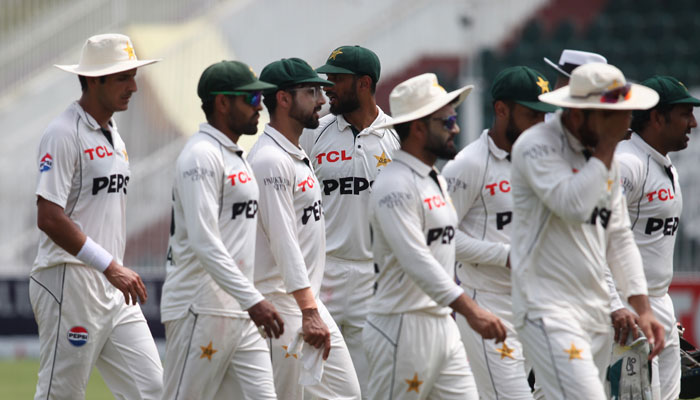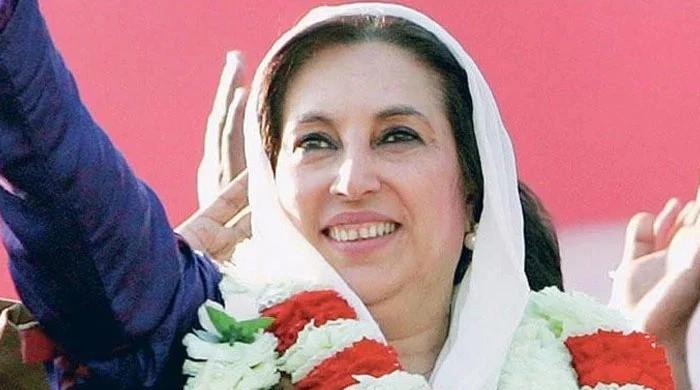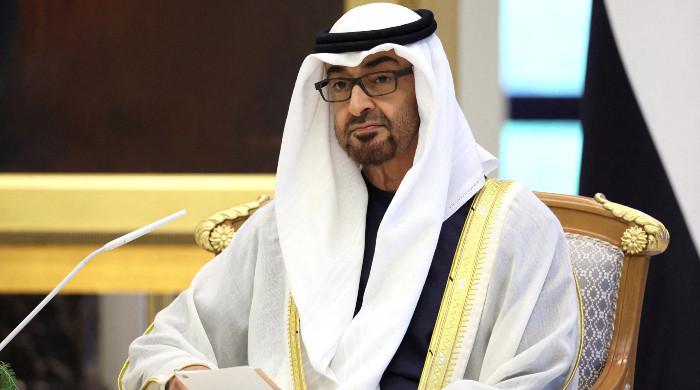The more things change, the more Pakistan cricket stays the same
Much work needs to be done if Pakistan are to go from "hopefuls" to "contenders" regularly in ICC tournaments
September 06, 2024

After the 2024 T20 World Cup debacle, the latest in a string of disappointments since their Champions Trophy triumph in 2017, Pakistan cricket thought further personnel changes were the solution. Wahab Riaz and Abdul Razzaq were removed from the selection committee, and former Australian fast bowler Jason Gillespie was brought in as coach of the Test team.
Also, Shan Masood was named as captain just before the Australia tour last year, with Babar Azam relieved of his duties. Such changes must bring about positive change immediately, right? Wrong.
If the shocking series defeat to Bangladesh doesn't highlight the deeper issues that exist in Pakistani cricket, nothing will. As has been the case in Tests in Pakistan in recent years, the hosts either couldn’t seize the initiative or were fighting just to avoid defeat.
Since the start of 2022, the Green Shirts have won none of their ten Tests at home, losing six and drawing four. The average first-innings score is 427.4 at 48.02 runs per wicket in these games.
In this period, the national side rarely looked like winning, except for when they had dreams of chasing 506 in the second Test against Australia at Karachi in 2022 and then missing a golden opportunity with Bangladesh 26/6 in the second Test in 2024.
In that Australia series, Imam-ul-Haq boasted about Pakistan taking 10 wickets in the bore draw at Rawalpindi, forgetting you need 20 to win. There seem to be mental and confidence issues within Pakistani cricket in this winless run, with the tendency to focus on not losing rather than pushing for wins via more bowler-friendly surfaces and aggressive field placements, for example.
Talented bowler Naseem Shah, arguably Pakistan's best pacer currently, has had enough. "We need to be honest. It's been too many series where we get these types of pitches,” he said during the first Test against Bangladesh.
"The groundstaff tried their best to make this pitch good for bowling, but perhaps because of the heat and sunshine, there isn't much help from the pitch. We need to think about how to extract home advantage, because you have to find a way to produce results from these games, otherwise you're not utilising home advantage," the paced remarked.
The batters have a lot to answer for, too. To succeed, you need fearless cricketers. To develop fearless cricketers, you need to instil a winning mindset as they develop through the ranks. This includes the pitches they play on and how to win the big moments when matches are there to be won.
Unfortunately, when the pressure begins to rise across formats, too many players don't have a plan of attack, either going into their shells completely or displaying recklessness that ultimately costs them, culminating in six defeats out of their last ten home Tests on mostly flat, lifeless pitches.
To drive change, the mindset shift must start from the top and work its way down. If you sat with Pakistan Cricket Board (PCB) Chairman Mohsin Naqvi and asked him where he sees Pakistan in the next five years, would he know? Who does the PCB see as the key people to help nurture talent through the system to ensure Pakistan cricket becomes a powerhouse once again? Will the likes of Jason Gillespie get enough time to implement their ideas, or will there be further change soon?
For anyone wondering why Pakistan have stagnated, here's a clue. The PCB has had five chairmen since December 2022. There has been a similar turnover in batting and bowling coaches. Instability in the organisation is going to lead to instability on the field. Also, for Pakistan cricket to go forward, it’s time to quit playing the blame game. This includes former – and even current – cricketers going on television and claiming a change of captain alone can be the solution.
Case in point was the 2023 ODI World Cup, where Imad Wasim and Mohammad Amir called for Babar Azam to step down as captain after a poor campaign. Months later, they were back playing for Pakistan in the T20 World Cup, under Babar’s leadership.
The PCB must now work as a unit. As Gary Kirsten rightly reported, the players' fitness, discipline and game awareness need urgent fixing. You cannot sort these problems out in a house divided against itself.
Also, Pakistan needs to nail its domestic setup, including its structure, the pitches and how players are developed. Development certainly entails skill, but Pakistan’s national team is not short of talent. The big issue is how many players burst onto the scene and then fade away instead of improving further. Shaheen Shah Afridi seems to be the latest example.
If Pakistan are to go from "hopefuls" to "contenders" regularly in International Cricket Council (ICC) tournaments, much work needs to be done. Time will tell whether there will be a concerted effort across the entire organisation to get Pakistan to perform to its potential once again.
For the good of the game, I hope that will be the case.
The author is a cricket writer and founder of Cric Blog
Disclaimer: The viewpoints expressed in this piece are the writer's own and don't necessarily reflect Geo.tv's editorial policy.









